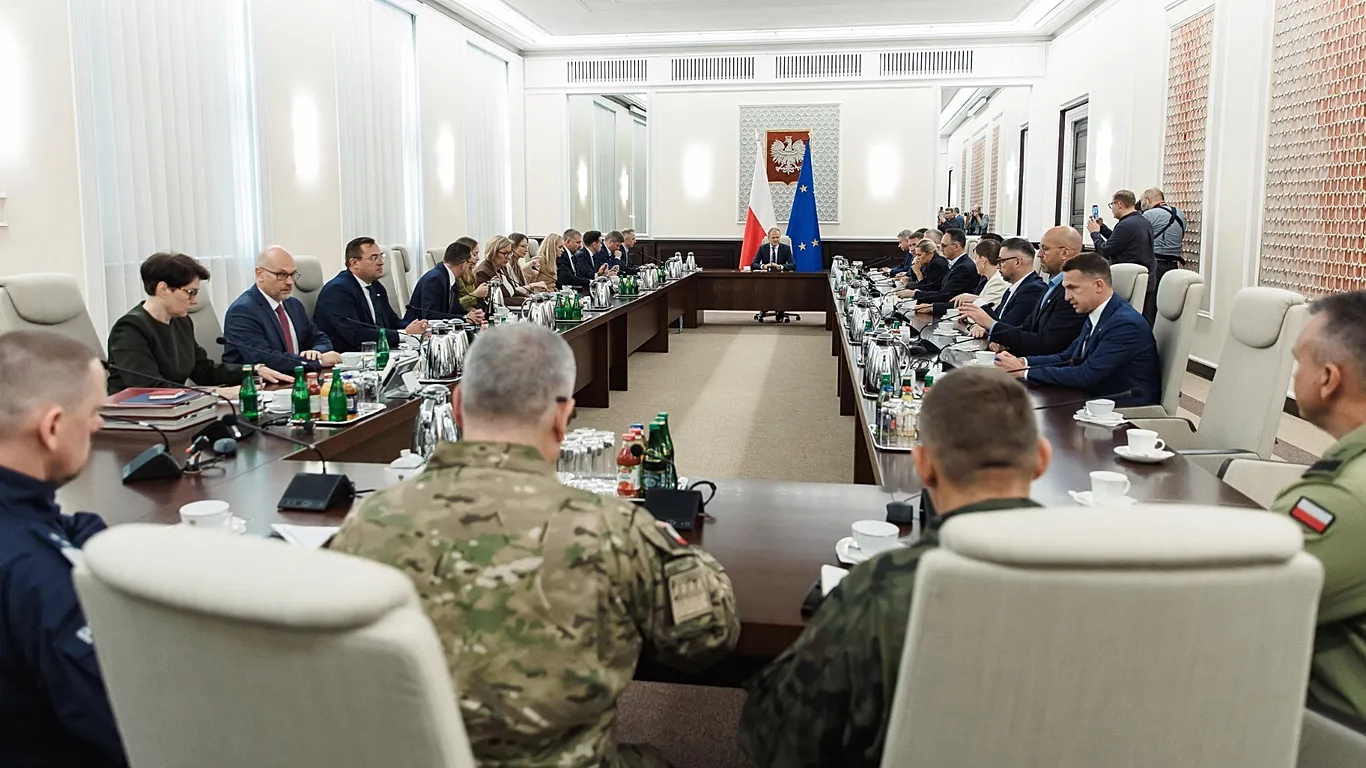WARSAW, Sept 10 —Poland triggered urgent NATO consultations after Russian drones penetrated its airspace amid a broader aerial assault on Ukraine. In a first for the war, NATO-member Poland engaged the intruders with its own and allied air defenses, marking a significant escalation in regional tensions.
According to Polish authorities, 19 drone-like objects breached the country’s airspace during a large-scale Russian offensive. Those regarded as threats were shot down in coordination with NATO—Polish F-16s, Dutch F-35s, Italian AWACS surveillance planes, and mid-air refueling aircraft were all involved in the operation. Prime Minister Donald Tusk described the incident as “the closest we have been to open conflict since World War Two,” while also stating that there was “no reason to believe we’re on the brink of war”.
Poland invoked Article 4 of the NATO Treaty, which mandates consultations when a member’s security is threatened. The move compelled an emergency response from the Alliance and prompted high-level discussions among NATO leaders . NATO Secretary-General Mark Rutte, in close contact with Warsaw, called the events “absolutely reckless” and “dangerous,” emphasizing the need for collective vigilance.
No casualties were reported, though debris from drones and at least one missile was found in regions such as Czesniki, Czosnowka, Wyryki, Mniszkow—and one drone reportedly struck a residential building in Wyryki, causing property damage without injuries. Multiple airports, including Warsaw Chopin and those in Lublin and Rzeszów, were temporarily closed as a precaution.
The Kremlin denied any intent to provoke, calling the accusations “groundless,” while Belarus contended that the drones may have strayed off course due to jamming, warning Poland in real-time. Ukrainian President Zelenskiy condemned the incursion as “an extremely dangerous precedent for Europe,” urging a unified international response. European leaders also denounced the violation, with renewed calls for bolstered air defenses and sanctions targeting Moscow.
This episode starkly underscores rising security threats along NATO’s eastern flank just days before the scheduled Zapad 2025 joint military exercise by Russia and Belarus, intensifying concerns over regional stability.





